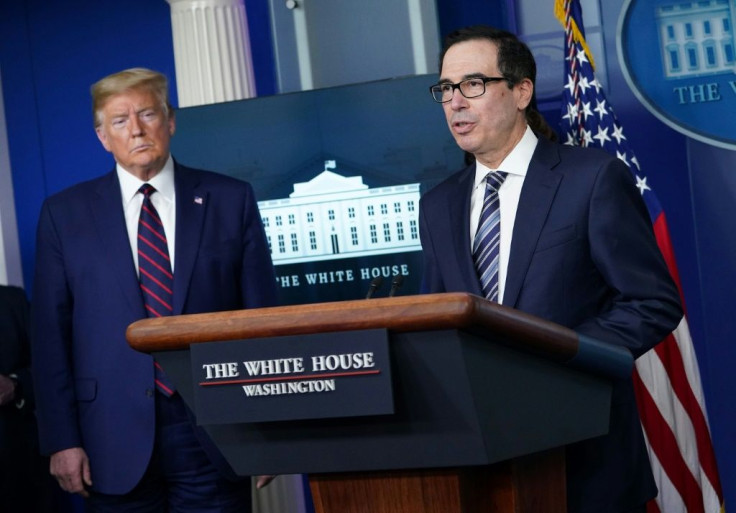Secret Service Paid Trump’s Hotel Over $33,000 While Guarding Treasury Secretary Mnuchin
KEY POINTS
- Mnuchin spent 137 straight nights at Trump's D.C. hotel in 2017
- Secret Service had to stay in the hotel to protect him
- Constitution bars presidents from taking federal payments aside from salary
Treasury Secretary Steven Mnuchin's 137-day stay at a Trump hotel in 2017 cost taxpayers over $33,000. The Washington D.C. hotel charged the Secret Service the maximum rate the federal agencies were allowed to pay for the room they rented to guard the newly appointed secretary, The Washington Post reported, citing federal documents and people familiar with the arrangement.
Trump’s company claims that it charges only minimal fees to the government agency tasked to protect Trump or members of his administration at Trump’s properties, but WaPo reports that “Secret Service records do not show that.” The hotel charged the Secret Service the maximum rate that federal agencies were allowed to pay: $242 per night. A Treasury Department spokesman told WaPo that Mnuchin paid for his suite by himself.
This is another report in a long line of examples of Trump’s company charging the Secret Service to stay at Trump’s hotels when he or members of his administration stayed in those properties. The Washington Post, particularly 2017 Pultizer Prize winner David Fahrenthold, has done a lot of reporting on this subject, finding that taxpayers foot the bill for as much as $650 per night for this arrangement between Trump's government and Trump's properties.

Typically, President Trump is the one traveling to these properties and requiring protection by the Secret Service, but this instance is different as it was initiated by Mnuchin. When asked by WaPo if the Treasury Secretary had considered the cost his lengthy stay was imposing on taxpayers, the Treasury spokesperson said: “The Secretary was not aware of what the U.S. Secret Service paid for the adjoining room.”
Breaking with precedent set by previous presidents like Jimmy Carter, who famously sold his peanut farm after winning the presidency, Trump still owns his businesses, which creates conflicts of interest given the vast scope of the presidency’s powers. The Constitution prohibits presidents from receiving payments from the federal government beyond their annual salary of $400,000, but Trump asserts that it does not restrict business transactions, and lawsuits challenging the president have stalled in federal courts.
In 2017, Trump's Department of Justice even adopted a narrow view of a law meant to bar foreign interests from corrupting federal officials, as Washington University Law professor Kathleen Clark wrote in the Indiana Law Review that justice department filings "would permit the president – and all federal officials – to accept unlimited amounts of money from foreign governments, as long as the money comes through commercial transactions with an entity owned by the federal official."
Neither President Trump nor the Trump Organization has disclosed how much taxpayer money had been paid to Trump’s businesses, but a previous assessment of documents by The Washington Post reveals that over 170 payments have been made by the Secret Service to Trump’s properties, totaling over $620,000.
© Copyright IBTimes 2024. All rights reserved.





















